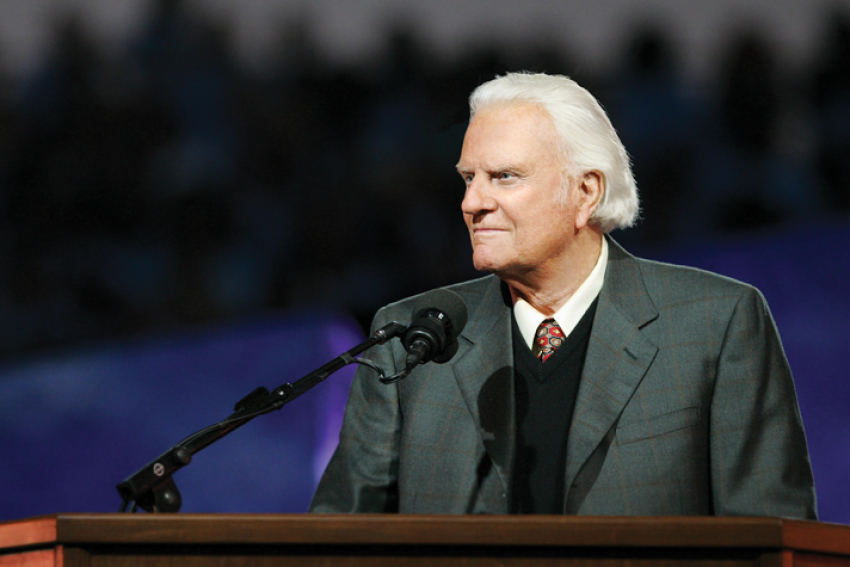Billy Graham: Why It's Important to Be an Example of Christ to Your Family

God has given you the opportunity to be an example of Christ in your family and you must take advantage of such an chance, the Rev. Billy Graham says.
Graham, founder of the Billy Graham Evangelistic Association, said on his "My Answers" column on the organization's website Tuesday that Christians should consider their relationship with God as a gift that needs to be shared with others, instead of being embarrassed of their faith around non-religious family members.
The 97-year-old evangelical leader writes that Christians should see their faith "not as a burden but as a God-given opportunity — an opportunity He is giving you to influence your family for good."
It is possible to express your religion to your relatives without coming off as overbearing, negative or self-righteous, Graham adds, as such an approach usually "turns people away from Christ instead of toward Him."
But it is also possible to show others the effect Christ's love has had in your life, as it has given you a sense of peace that will shine through in social interactions.
Graham cites John 13:35, which reads: "By this everyone will know that you are my disciples, if you love one another" as evidence of how Christ's love can be shared with others.
With these tips in mind, Graham encourages all Christians to pray that God will help them spread His love to their family members.
"Some in your extended family may already love God — and He can use you to encourage them. Some may be seeking God, or wondering what the future holds for them — and He can use you to point them to Jesus. And some may have no interest in Christ or may even scorn you — but God can still use you to plant seeds of faith in their hearts," the evangelical leader concludes.
Along with evangelizing to your family members, Graham has also spoken on the importance of evangelizing on a global scale, writing in a previous blog post that missionaries "are needed today more than ever."
"... some countries are now open to the Gospel that were closed only 15 or 20 years ago, and opportunities for evangelism and service in those nations have exploded. In addition, churches in those countries often need training and other skills that only missionaries can supply," Graham adds.
Chuck Lawless, who serves as professor of evangelism and missions and dean of graduate studies at Southeastern Seminary, said in an op-ed for The Christian Post that there are several reasons as to why Christians might be hesitant to evangelize.
Among the nine reasons he cited, Lawless mentions the fact that the "fear of the unknown" might prevent Christians from evangelizing.
"You've probably heard fears expressed: 'He might not listen to me.' 'What if doing this costs me my friend?' 'She might ask me questions I can't answer.' 'They might reject what I say.'
"Most of these fears, I believe, are more perceived than real in North American culture, but perception matters," Lawless writes.
Another reason Christians might avoid evangelism is because they are not frequently surrounded by nonreligious people.
"Many church members are so cocooned in the Church world that they couldn't list several names of non-believers they know well. If our whole world revolves around hanging out with Christians, we're not likely to do evangelism," Lawless says.



























